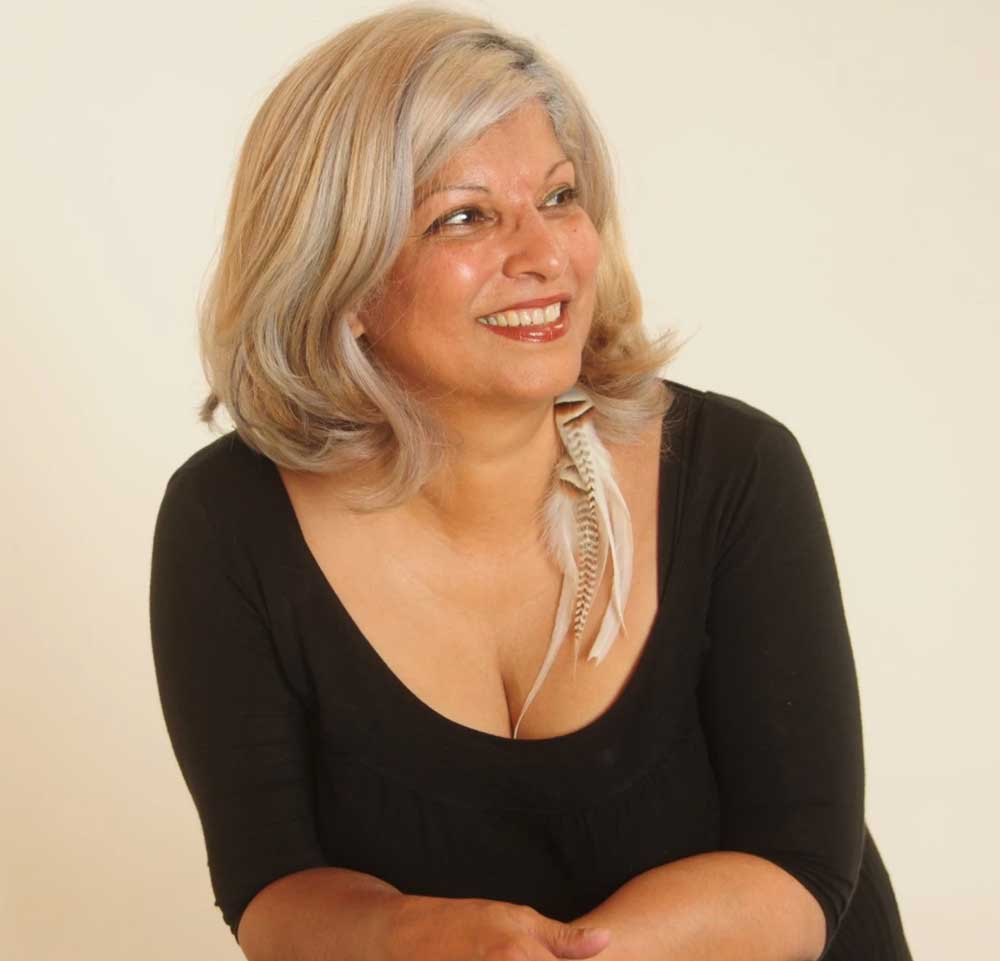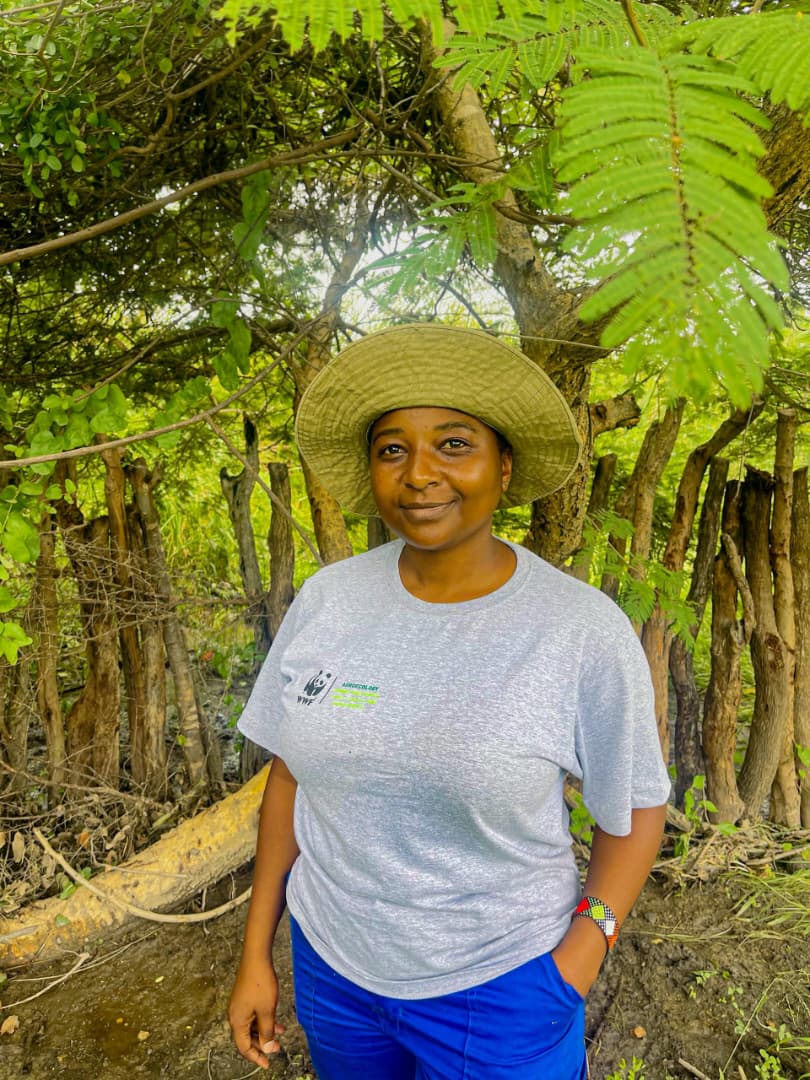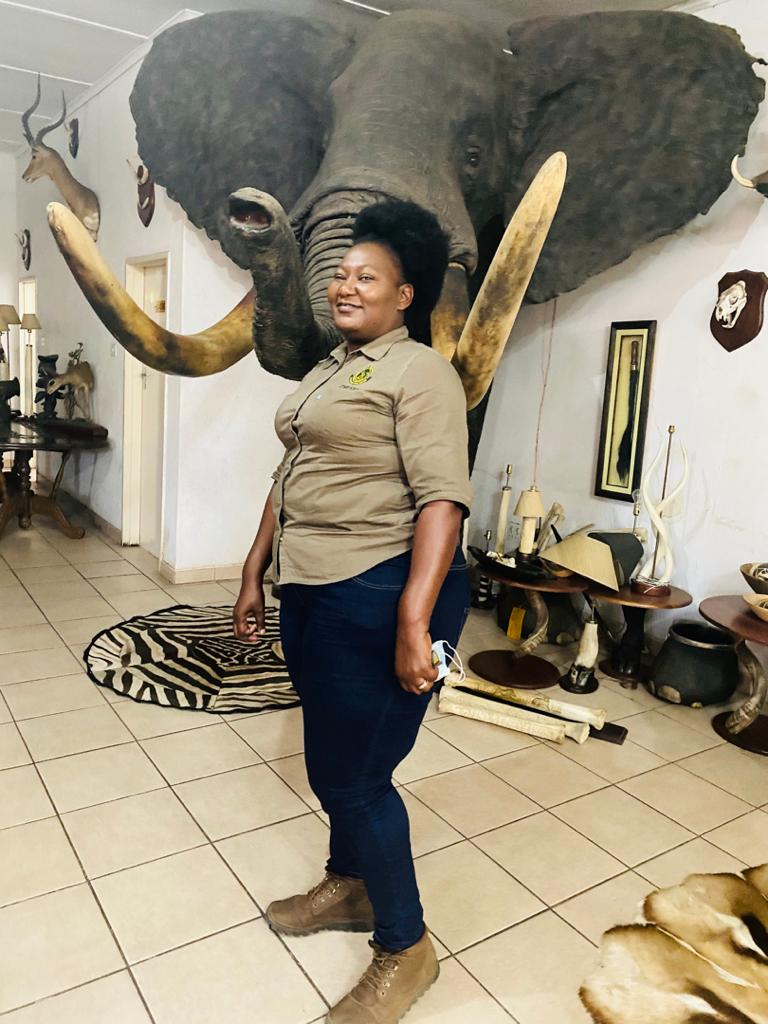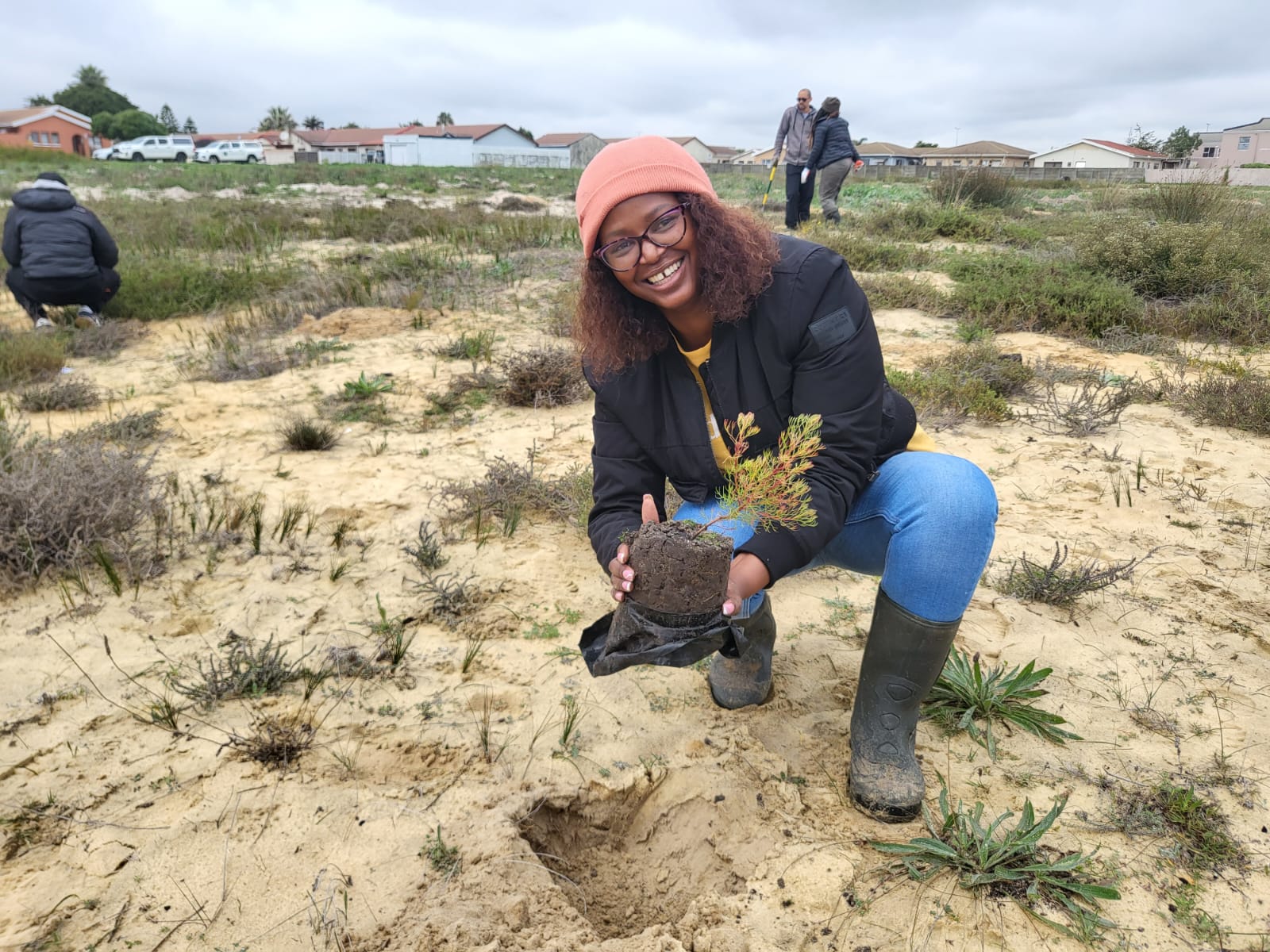I realised that once I based my life on pleasing others and meeting their expectations, it would never be enough
“Truth is when what people think, say and do are in harmony.” That is Tazim Elkington’s philosophy with every interaction she has- be it written, spoken or taught. The 58-year-old paradigm shifter, trainer and facilitator, writer, speaker, poet and creator of the Q factor is the embodiment of living life on your own terms.
Unconventional, stimulating, candid and extremely jovial, the woman also known as the Indian Black Butterfly talks to Damaris Agweyu about her mission to create revolutionary social change one person at a time.

Your life is different. Well, everyone’s life is different, but yours is quite different.
It is. From a very young age, I chose not to stay on the main highway and do what the masses do and are expected to do. I have never bought into that cookie-cutter belief of how life is supposed to be lived.
And how, in your opinion, is life supposed to be lived?
Life is about finding your own space and pace; it’s not about fitting into the expectations of others or living by 'society’s' expectations. Society in itself is a phantom.
Are you saying you’ve never made any attempt to fit in?
I did try when I was younger, I tried so hard and it was so painful. I could have pushed myself to fit in but had I done this, I would have died inside- and I did die inside many times because I tried so hard to be accepted and avoid conflict. But then I realised that once I based my life on pleasing others and meeting their expectations, it would never be enough and I would constantly have to keep on doing that until the end of my life. I had to stand up for myself and what that meant was that it was not going to be an easy ride- and it hasn’t been; I have had a very challenging life but I take full responsibility for every decision I have made. In the end, I paved a beautiful path which I would not change for anything today!
At what point did you decide to stand up for yourself?
I ran away from home when I was 17 and a half.
That must have been scary-for your parents
I wrote a note and left on April 1st 1978 because I thought they would think that it was an April fool’s joke.
Did they?
No. Although I did not find out what went on after I left until later. It didn’t matter anyhow because I had made that decision and went through with it. I remember leaving with this broken-down box of a suitcase, my very worn out towel and a few clothes but feeling very rich.
Why is a 17-year-old girl running away from home?
I didn’t have the support I needed from my family nor did I feel understood or loved and didn’t think I was ever going to get it.
What kind of support weren't you getting?
My life had been set out for me and this included the kind of person I would eventually have to marry- from a cultural, religious and economic perspective. I wanted to choose the person I would marry and have the possibility to look beyond the ‘brown lane’.
And did you?
Yes.
As you were running away, did you have a safety net?
My 1st job was at UTC/Hertz car hire following which I got a job in tourism quite quickly and that’s where I stayed for the next 18 years of my life. The company was called Across Africa Tours and I was so determined to succeed that by the time I was leaving the 2nd job to join my new company, Nile Star, I was coming in as a manager at 20 years old. Then my previous employer, Across Africa Tours, called me to say they wanted me back and were ready to pay me more money. I gave my notice to Nile Star and went back to Africa Across which is the Wildlife Safari we know today. I was there for fifteen years before I joined Hilton as the Director of Sales and Marketing for their 3 Kenyan Properties. The funny thing is, even as I joined Hilton, I had never switched on a computer in my life and yet here I was, getting a high profile job with one of the biggest hotel brands in the world. For every job I had, there was no training and I learnt while working.
The first time I was trying to sell a tour to a client, we were both looking for the Maasai Mara on the map. I couldn’t find it. I promised myself I would never put myself in such an embarrassing position again so I took that map home and by the end of the week, not only could I find the Mara but I could tell you every location on the entire map of Kenya. To date, once I am given something to handle, I teach myself to understand it and then get on with it. I don’t believe in setting objectives and outcomes, I just do what I need to.
But this is the narrative we have been sold for years: Set goals to achieve outcomes
I don’t set goals for my life. I don’t do resolutions. I just take things as they come, and when I think maybe I have to turn my focus on something a little bit more or maybe I need to do that a little bit better, that’s what I do. This intention setting thing has now become all about people finding their purpose, I am not looking for purpose; my purpose is I exist. Every moment is purposeful and looking for that one purpose is so limiting. My purpose right now is to sit here and have this discussion and when you leave, my purpose will be to make myself a plate of food and get ready for my client. In every moment, there is purpose, there is purpose when I am meditating, there is purpose when I am having a conversation, because what we are discussing is not where I get my nails or hair done or how much money I have in the bank- those things are not matters of substance to me. They are important because I have to exist but they are not things I am going to have a conversation about. If I am going to have a conversation it’s got to have substance and so in that substance there is meaning and in that meaning there is purpose.
Journeys to self-enlightenment almost always have triggers, what was yours?
I had been working as a consultant for the airline industry in Canada and then 9/11 happened. That is when my life went from being on the 10th floor to going to the basement; what a challenging, growing experience it was. I lost my consultancy job, my partner decided to leave the company he was working for after 28 years and our life turned around. Already, we had some challenges by moving to a new country and then with 9/11, the economy just collapsed. This affected every segment but the tourism/airline industry was especially hard hit. My contract suddenly came to an end. For the first time in my life since I was 17 and a half years old, things became very tough for me. I felt like I had nowhere to turn, there wasn’t a network and I had no sphere to relate to- but then this was the moment when my internal gifts started to show up. It’s when the tide is low that all the pebbles and the shells come out.
It’s when the tide is low that all the pebbles and the shells come out, I like that
(Ponders) Yeah, me too!
What were your 'pebbles and shells'?
I started working on myself deeply- my mind, my emotions. I meditated a lot.
So no wallowing for you?
I wallowed, but not for long as that was not going to solve anything. This period was even tougher than my divorce because it felt like the net beneath me had disappeared. Both my two children and my partner’s two children were in college and suddenly with four kids depending on us, things just stopped working. It was a really tough time but it made me realize that I am able to get out of the toughest corners in life. It took me 10 months to find my footing but all of the stress affected my relationship with my partner and ultimately we split up- which was fine because nothing is forever you know. A new chapter in my life was about to begin. I found work at a real estate firm and again, started at an entry-level position after having worked for 25 years of my life.
That’s humbling.
I had to take it because I had been to so many interviews, and while I was overqualified for every Management job, I didn’t have the so-called educational status because I did not go to university. I had learnt everything I knew on the job. I could have coiled up in a corner and allowed myself to become depressed but how would that have helped me or my children? I had to get myself together and my meditation really helped. If I hadn’t started meditating 28 years ago, I don’t know if I would have survived life.
That’s a strong proclamation.
And a true one. Meditation, specifically transcendental meditation has helped me shed a lot of the daily accumulation of stress and transcend all of the external stuff. It has opened up my life and helped me get to the source of who I am to a level where all this glam, glitter and noise that people run after has become very distant.
Sounds like something most of us could do with.
It is. Life as you know it can turn upside down; it’s all transitional. This moment of us speaking will pass, children will be born and grow and leave, we will all die at some point. It’s just the way life is and so if this is the case, the most important thing is that I die without all that baggage that we create in this lifetime. My entire focus has been on understanding and dealing with it so that I don’t carry it to my death and into my next life and lives.
What is this baggage you speak of?
When we are born, as babies, we have no control over anything. Our parents, families and teachers are the ones who take care of us and they all come with certain belief systems and an amount of dysfunctionality which is imposed on the infant, this is partly what creates the baggage and creates distorted unrealistic realities and chasing the glitz and glam but ignoring the whole point of life.
And this is what you do right now; help people deal with the baggage?
Yes. I am a certified Hypnotherapist and Transpersonal regression therapist. On the individual level, I help people become more of who they are so they can live improved and healthier quality of life. On a broader level, I work with organisations to help them transform their work culture and obtain optimum levels of success. My methodologies are tough and effective and affect people at the deepest levels to transform their own lives first and impact those around them.

Tazim doing her thing at a previous event
Tell me more about your work with organisations.
After 9 years of living in Canada, the one thing I decided when I came back to Kenya was that I was no longer going to be employed by anyone. So I started to create this body of work based on my corporate management experience combined with the personal work I had done on myself. My methodologies are self-created and customized to the needs of each organization. The kind of training I do goes through the very core of each human being in that organization. There are major components of emotional intelligence, well-directed value systems, debunking old belief systems and authentic leadership modules. In the 21st century, we do not have a choice but to operate on that basis where human resource is not just numbers that have to reach the profit margins, we have to look at the human factor. We have to create new ways of dealing with staff, customers and service providers. Unfortunately, most companies still operate at the 20th-century level and that is why they think things like team-building work. Team building does not work.
Say that last sentence again.
Team building does not work. People go out, eat, drink, pull rope, climb rocks and come back but there is nothing different. The kind of work I do with corporates goes really deep into the human psyche. It’s about changing the culture of an organization, looking at the deepest understanding of value systems, creating healthy workspaces, encouraging authenticity. Most people go to work because they need money but we can’t carry on like that, not now, not in the 21st century, we need to go to work because we love what we do and because it gives our life meaning.
Now you are speaking my language.
We should all be speaking this language. You are spending the biggest part of your life at work and if you are going to a job you don’t like, what’s your life worth, what does your life mean?
I feel equally strongly about this topic, however, many people feel like they have no choice in the kind of work they do, because at the end of the day we all have bills to pay, what are your thoughts on this?
It’s true, not everybody can have their own business, let’s be clear about that. Most people will just have to work in jobs because that’s just how our economic and social structure and the system is- but what I would say is: whatever job you are in, find a position that is going to give you some sort of satisfaction, something that makes you look forward to life when you wake up. And if you are not happy in that job, then look for a place where you will get more satisfaction because there are organizations that are starting to shift and want their employees to be happy.
Change is scary, so is taking risks.
It is. But people need to be bold and be willing to take calculated risks. Don’t just resign from your job when you don’t have anything else to fall back on. Stop being afraid to live your life to the fullest possible, stop living in fear because you will never find the other side of it which is freedom.
What are the mistakes that Kenyan employers are making?
Communication. People don’t know how to communicate. It’s usually condescending and with negative authority: I am the boss and you are the employee. Employees are often scared of their bosses they are scared that if I don’t do what the boss person says or wants, they will lose their job. All this stuff is so outdated! Our biggest resource are the people that work in an organization, we have to uphold and uplift them, train them, we have to develop people and not just for their growth but for the growth of the organization. Ultimately, profit margins are not met because people are working 12 or 14 hours a day they are met when people feel their job is meaningful and that they make a difference whether one is a CEO or the tea maker.
Have your methodologies changed organisations?
Yes. My work has had an enormous impact on those who have interacted with it both at the individual and organizational level.
You’re also a speaker
Yes. Some people call me a motivational speaker- I am not a motivational speaker, please, I am not here to motivate anybody. If there is anyone that needs motivation then they should be motivating themselves because that is where motivation comes from. What I do is talk about things from an alternative space and create a different understanding of life.
How though?
Give me a topic; it will be easier to demonstrate.
Career choices.
So I will get into the details of really questioning and detangling the subject. I would ask questions like, "What made you choose your career? Did your family give you enough rope to take the career you wanted? Why are you selecting what you are selecting?" When you drill down you find out that you are probably making the choices not from your own perspective but from the perspective of impositions and expectations of others.
So the idea is to help people to understand why they are doing what they are doing?
Absolutely. My methods require people to really ‘see’ as well as ‘hear’ themselves to supersede beliefs, perceptions, habits and attitudes that create disharmony.
What challenges do you face in your work?
I work alone and because of that, I can’t reach many people. I am willing to train people to learn my methodologies and even take them to their own level but for now, I am happy to peacefully work by myself.
Any personal challenges or are you always in this Zen space?
This is a misperception that when one does the inner work, outside challenges will stop. That’s nonsense. Life cannot be without challenges. And problems will not stop, and we have created them from the day humanity began. The difference is how one deals with the challenges. Doing all of this internal work helps me to deal with life in a very different way. So when there is an issue, I won’t dive into it, which is what most people do: There is a problem and people dive into it and then sit in it and are cooking in the soup of the problem.
Your job is to find the solution, not dwell on/in the problem. I always look at a problem as a blessing rather than a curse because, at the end of the day, it comes in your life to teach you something, to grow you. We cannot grow if everything is easy. And when you start living a solution-based rather than problem-based life, you cut through and avoid all the bullshit and the drama. In other words, you "Quit the Qrap".
For more wisdom and insights from Tazim Elkington, get your copy of Different Paths, One Journey HERE.





